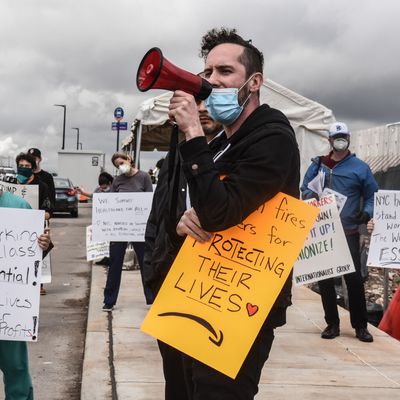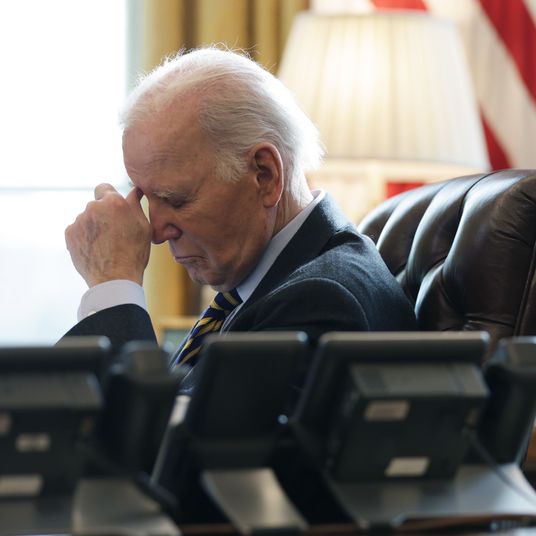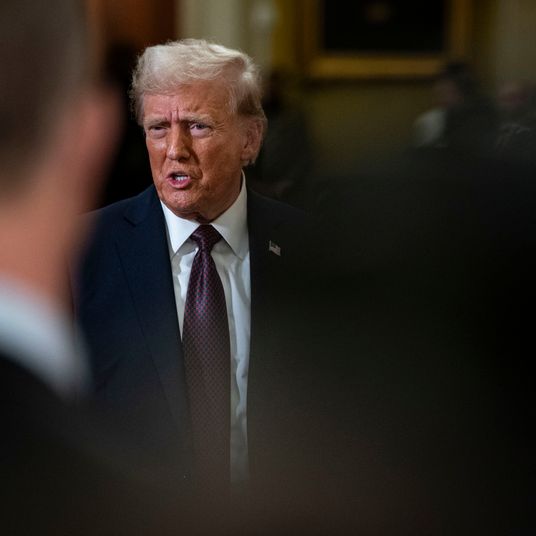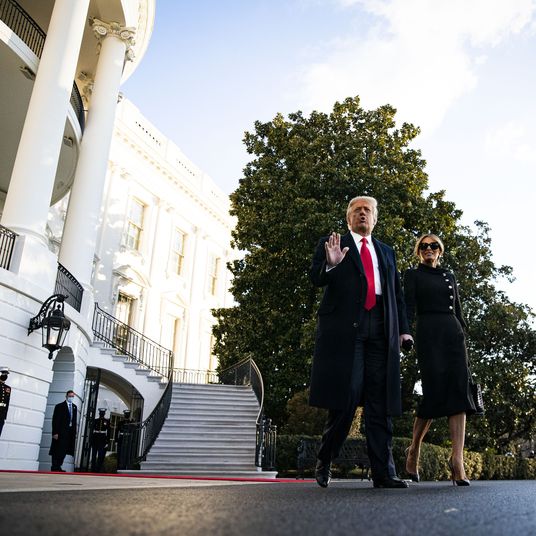
The pandemic has been very good for Amazon. Profits are up; Jeff Bezos, its founder and until recently its CEO, is an even bigger billionaire than he was when the country started shutting down. But Amazon earned those profits at the expense of its warehouse workers, argues a lawsuit filed by New York Attorney General Letitia James on Wednesday. The massive company “has repeatedly and persistently failed to comply with its obligation to institute reasonable and adequate measures to protect its workers from the spread of the virus” in two fulfillment centers, located in Staten Island and Queens, the complaint says.
New York’s lawsuit accuses Amazon of illegally retaliating against Christian Smalls, a Staten Island warehouse worker who was fired after leading a protest at his worksite. As Smalls told Intelligencer not long after his firing, he believes Amazon singled him out for his activism. Smalls, like other Amazon workers who led walkouts over the long COVID summer, said that Amazon waited days to tell employees when a co-worker fell ill with the virus and that proper social-distancing measures were not in place. Amazon vigorously disputes Smalls’s story, claiming instead that it had dismissed him for violating viral quarantine and that conditions inside his warehouse were as safe as the company could feasibly make them.
New York’s lawsuit argues otherwise, alleging that Amazon “received written notification of at least 250 employees” with COVID at its Staten Island warehouse. Of that number, according to the complaint, at least 90 had been to work within the last week, and “[i]n more than 80 of these instances, Amazon failed to close any portion of the JFK8 facility even after receiving documentation of the confirmed positive case.” On at least 30 occasions, the suit says, “infected workers were present in the facility within 24 hours of a positive COVID-19 test or diagnosis.”
Amazon insists that it’s done nothing wrong. “We don’t believe the attorney general’s filing presents an accurate picture of Amazon’s industry-leading response to the pandemic,” a spokesperson, Kelly Nantel, told the New York Times. The company even preemptively sued James to try to block her from filing Thursday’s complaint. Workplace safety falls under federal rather than state purview, Amazon argued, so James, as New York’s attorney general, lacks the legal authority to bring charges. A court will decide whether that argument has any credibility, but the preemptive suit is unusual, a measure of Amazon’s aggression.
James has signed up for a bitter fight. The pandemic revealed the extremes to which Amazon will go to defend itself against any perceived threat to its power. Smalls can attest: Not only did he lose his job, a memo leaked to Vice News in March revealed a company plan to publicly smear him as “not smart or articulate.” Amazon workers in Bessemer, Alabama, are also familiar with the company’s scorched-earth tactics. There, Amazon responded to a union drive organized by the Retail, Wholesale, and Department Store Union with hostility. It asked the National Labor Relations Board to force an in-person vote on the measure, despite the pandemic; meanwhile, it bombarded workers with anti-union messages by text, in the warehouse, even in worksite toilets. Amazon lost its effort to prevent mail-in balloting, and the Bessemer vote is ongoing; all ballots must be postmarked by March 29. Only then will the company — and everyone else — learn whether it successfully strong-armed workers into silence.
Stuart Appelbaum, the president of the RWDSU, sees a connection between New York’s lawsuit and the Bessemer union drive. “This lawsuit is about Amazon’s failure to protect its workforce in New York. But the story is the same everywhere Amazon operates,” he said in a statement. “Amazon needs to do better for all its employees to keep them safe. It’s not that Amazon cannot afford to, but that Amazon doesn’t want to. Amazon has betrayed its responsibility to its employees to provide a safe workplace, and we must never tolerate that. Amazon needs to change.”






























